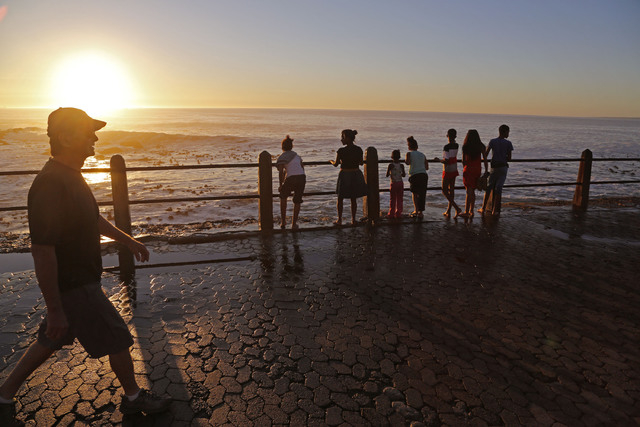African tourism hit hard by Ebola scare

KAMPALA, Uganda — Ebola is thousands of miles away from Kenya’s pristine Indian Ocean beaches, but the deadly disease appears to be discouraging tourism there and elsewhere in this vast continent.
Harald Kampa, a hotelier near Mombasa, says the Ebola outbreak in West Africa is hurting his business.
For two weeks in August he had no international arrivals at his Diani Sea Resort, leading him to suspect that Ebola had frightened away his clients. He noticed an improvement only after Kenya Airways canceled flights to the Ebola-hit West African nations of Sierra Leone and Liberia, action that the local tourism fraternity said was necessary to assure tourists of Kenya’s determination to keep Ebola out.
Kampa is not alone. Tour operators across Africa say they face difficulties as the Ebola outbreak, which has killed more than 2,200 people in four countries, continues to defy international efforts to control it. Tourism, a major source of revenue for many African countries — especially Kenya and South Africa — is increasingly being hurt as some potential visitors hesitate over visiting the continent which is home to the disease.
In Nigeria, where there have been very few Ebola cases, occupancy rates in five-star hotels in the commercial capital Lagos have fallen drastically, with many conferences postponed until further notice, said Nigerian economist Bismarck Rewane of the Financial Derivatives Company. Occupancy rates now generally hover around 30 percent instead of 65 percent at this time of year, and the drop is even higher for bar and restaurant traffic in Lagos, he said.
“I think people are less inclined to mix with others … People are now more cautious about mingling,” he said.
In South Africa there is “alarm in the market” stemming from misconceptions about how the Ebola virus can be contracted and the location of the affected countries, said the Tourism Business Council of South Africa. Although there have been no Ebola cases reported in South Africa, many in its tourism industry fear a downturn.
The current Ebola outbreak is “a big deal” and has raised “significant” concerns over African travel, said Blake Fleetwood, president of New York-based Cook Travel. Roughly half the people booking through his agency canceled trips, he said. Some clients “figure somebody from Sierra Leone is going to go to Morocco and the infection is going to spread through the continent,” he said. Some trips to Egypt and Morocco have been scrapped and at least 14 groups booked for safaris in Kenya or South Africa have been canceled, he said.
Even though the World Health Organization and international trade groups say there is low risk of transmitting the virus during air travel, major airlines such as British Airways, Kenya Airways and Air France have cancelled flights to some Ebola-hit countries.
South Africa’s government last month issued a travel ban for all non-South Africans traveling from Guinea, Liberia and Sierra Leone, three of five West African countries battling Ebola. Kenya’s government has taken similar action.
Apes and monkeys are often mentioned by health experts as possible carriers of the virus. That may hurt the gorilla tourism in Rwanda and Uganda where a permit to see the great apes their forested habitat costs about $600.
“Ebola is associated with primates and Uganda is associated with primates,” said Amos Wekesa, a tour operator in the Ugandan capital of Kampala. “It just sends people out of the country,” Wekesa lamented. “In the mind of many travelers around the world, Africa is one country.”
———
Associated Press reporter Scott Meyerowitz in New York contributed to this report.